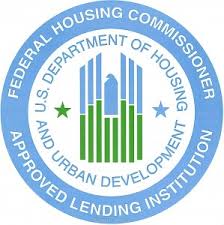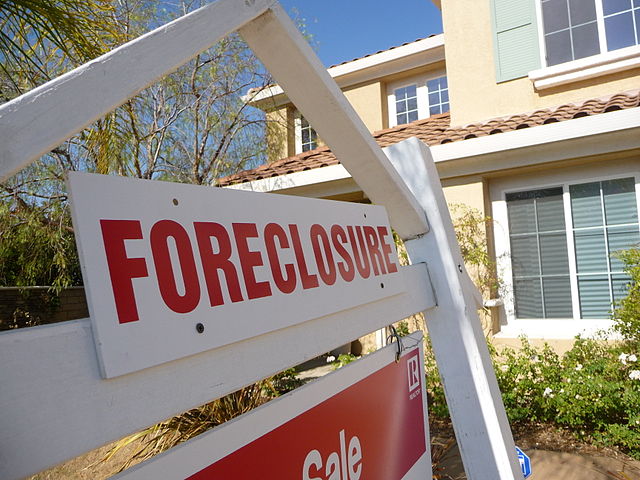 On his first day in office, President Donald Trump signed an executive order reversing a recently passed Obama administration policy that reduced the fee rate for Federal Housing Administration backed loans.
On his first day in office, President Donald Trump signed an executive order reversing a recently passed Obama administration policy that reduced the fee rate for Federal Housing Administration backed loans.
What is the change?
The administration canceled a reduction in the Federal Housing Administration’s annual fee for most borrowers.
The cut passed during the final days of the Obama administration would have reduced the annual premium for someone borrowing $200,000 by $500 in the first year.
When the fee rate policy change was announced by Obama’s Housing and Urban Development secretary Julian Castro in January, it was criticized by Donald Trump and Republicans.
What are the fees for?
The premiums fund the Mutual Mortgage Insurance Fund, which bails out lenders if borrowers default on their mortgages. Republicans argued the fee reductions put taxpayers at risk by lowering the funds the FHA has to deal with mortgage defaults.
FHA mortgage loan fees were raised during the housing recession to cover program losses. The Obama policy cutting them would have returned them to almost to the level they were before the housing bubble burst in 2008.
 A letter from HUD to lenders and the real estate industry announced they would “suspend indefinitely” the rate reduction, stating “more analysis and research are deemed necessary to assess future adjustments while also considering potential market conditions in an ever-changing global economy that could impact our efforts.”
A letter from HUD to lenders and the real estate industry announced they would “suspend indefinitely” the rate reduction, stating “more analysis and research are deemed necessary to assess future adjustments while also considering potential market conditions in an ever-changing global economy that could impact our efforts.”
What was the response to the change?
The responses to the Trump administration policy were mixed.
Senate minority leader Chuck Schumer denounced the move, while the nominee for Secretary of HUD Ben Carson criticized the new policy when it was implemented by the outgoing administration.
Some housing industry groups approved of the change, saying it would increase home buying by offsetting recent rises in mortgage rates.
Other critics included the President of the National Community Reinvestment Coalition, John Taylor, who asked through a spokesman: “Exactly how does raising the cost of buying a home help average people?”
President of the National Association of Realtors, William E. Brown, said the fee rate cuts would have allowed more people to qualify for a mortgage because it would allow them to meet the debt-to-income ratio required for borrowing money.
The mortgage rate fee hikes were originally implemented during the Obama administration when FHA was under severe stress because of the financial crisis. In 2013 the agency was bailed out by the for $1.7 billion after a huge wave of mortgage defaults.
What does it mean?
In their letter to the real estate industry, HUD stated that “FHA is committed to ensuring its mortgage insurance programs remains viable and effective in the long term for all parties involved, especially our taxpayers.”
With this recent policy change, potential home buyers and the real estate industry will need to wait and see what the effects on the housing market will be.
* Advertising Material: To the extent that the information in this e-mail is interpreted as attorney advertising in accordance with the Illinois Rules of Professional Conduct or within the meaning of state bar rules from all other localities, this statement is made pursuant to those rules.
Specialties: Specialization claims are prohibited by Illinois Supreme Court Rules and we do not claim to be specialists. The content of this e-mail is organized and presented for the sole purpose of general information. None of the included content should be construed as legal advice. Viewing this e-mail or e-mailing the account holder does not create an attorney-client relationship. NOTICE: This page may be considered advertising material.
The Law Offices of Lora Fausett P.C. provide real estate law attorney services including short sales and deeds in lieu, loan modifications and workouts, and buying & selling assistance.
For Information Call 630-858-0090
Sources:
Trump Reverses Obama’s Mortgage Fee Cuts on First Day – Bloomberg
Trump’s first executive action: Cancel Obama’s mortgage premium cuts – USA Today
Trump’s Mortgage Fee Cut Reversal: What it Really Means for House-Hunters – Fox Business
HUD Official Website
 According to a recent report by the Mortgage Bankers Association (MBA), the delinquency rate for mortgage loans rose to a seasonally adjusted 8.22% rate in the second quarter of 2020. The results marked the highest rate in nine years. The nearly 4% increase was also the highest spike from the previous quarter in the survey’s history. In addition, the survey indicated a record high delinquency rate for FHA mortgages, reserved for first-time homebuyers.
According to a recent report by the Mortgage Bankers Association (MBA), the delinquency rate for mortgage loans rose to a seasonally adjusted 8.22% rate in the second quarter of 2020. The results marked the highest rate in nine years. The nearly 4% increase was also the highest spike from the previous quarter in the survey’s history. In addition, the survey indicated a record high delinquency rate for FHA mortgages, reserved for first-time homebuyers.


 Because of the improving economy and falling unemployment rate, people that have bought homes in Illinois since the recession have seen their home values rise.
Because of the improving economy and falling unemployment rate, people that have bought homes in Illinois since the recession have seen their home values rise. One major problem with home values in Illinois is that the high property taxes tend to suppress home values, thus lowering equity.
One major problem with home values in Illinois is that the high property taxes tend to suppress home values, thus lowering equity. The Law Offices of Lora Fausett P.C. provides
The Law Offices of Lora Fausett P.C. provides  On his first day in office, President Donald Trump signed an executive order reversing a recently passed Obama administration policy that reduced the fee rate for Federal Housing Administration backed loans.
On his first day in office, President Donald Trump signed an executive order reversing a recently passed Obama administration policy that reduced the fee rate for Federal Housing Administration backed loans. A letter from HUD to lenders and the real estate industry announced they would “suspend indefinitely” the rate reduction, stating “more analysis and research are deemed necessary to assess future adjustments while also considering potential market conditions in an ever-changing global economy that could impact our efforts.”
A letter from HUD to lenders and the real estate industry announced they would “suspend indefinitely” the rate reduction, stating “more analysis and research are deemed necessary to assess future adjustments while also considering potential market conditions in an ever-changing global economy that could impact our efforts.”